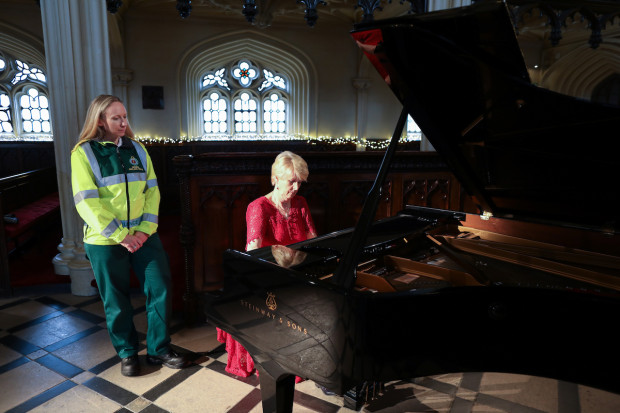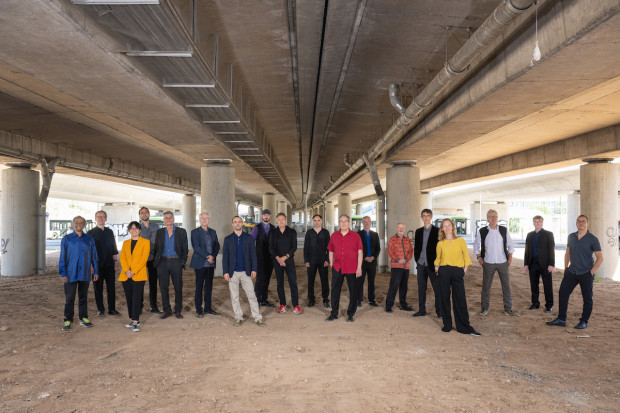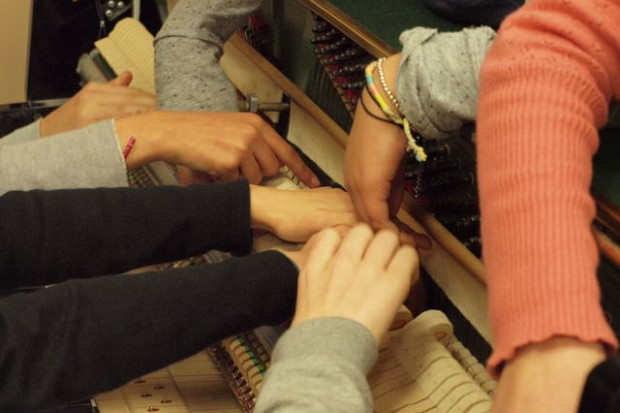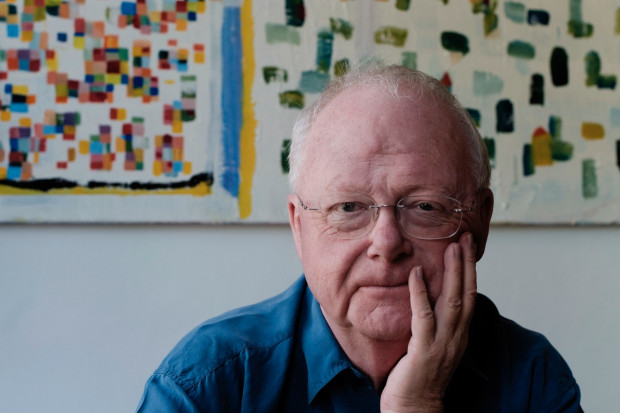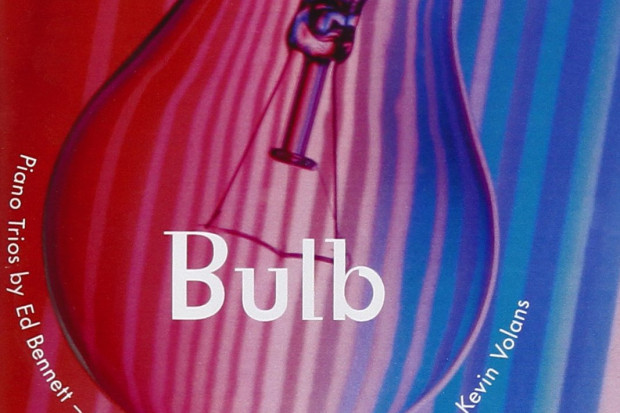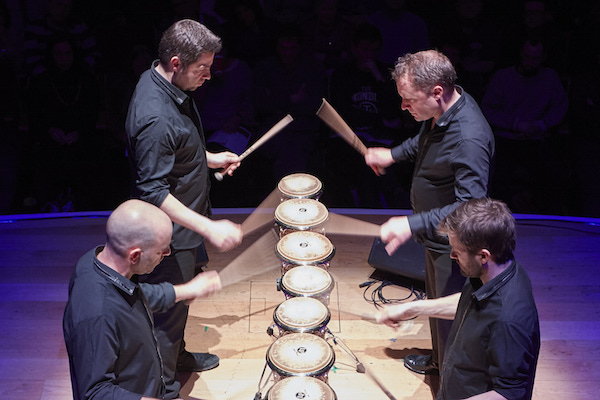
The Colin Currie Quartet
Sticks in the Air
The Printworks at Dublin Castle seems like the right venue for the main contemporary music concert at this year’s Great Music in Irish Houses festival. With its glass facade and large, square minimalist space, and a wide stage flanked by a live video feed of the performance, it revels in its modernism. Colin Currie’s new percussion quartet, which carries his name, performed a varied programme on Saturday 14 June, featuring a mix of landmark twentieth-century percussion works with newer pieces, including the Irish premiere of a 2015 work by Kevin Volans.
The first work of the evening was a short mallet quartet by the percussionist–composer Joseph Pereira, for two vibraphones and two marimbas. Pereira, the principal timpanist for the Los Angeles Philharmonic, writes for percussion as a percussionist, one who delights in the variety of sounds offered by his instruments. Some moments stand out in the memory: beautifully clean compound rhythms, murky wind sounds in the low register of the marimba, a whistling overtone seeming to exist more clearly than the fundamental pitch below it, and the toy box sound of the closing section, vibraphones gently tapped with the backs of mallets.
Next on the programme were two shorter works performed by Currie alone: Xenakis’ Rebonds B and Stockhausen’s Vibra-Elufa. Though two works by titans of mid-twentieth century modernism, they couldn’t have been more different; the Xenakis (which Currie called ‘a battle’ between woodblocks and drums) confrontational and largely regular; the latter a ghostly work for vibraphone adapted from the composer’s opera Freitag aus Licht, making much of timbral adjustments and semitone movement.
Escheresque
The central work in the concert was the Irish premiere of a work by Kevin Volans, which the quartet has been performing on their current tour. It carries the Steve Reich-ish title 4 Marimbas. There does seem to be a spirit of Reich in the work, which makes much of seven-voice canons, along with Volans’ typical ostinati, like those heard in his twelfth string quartet. The mood is often peaceful, and yet more tense moments occurred without a break in momentum. The unity of tone colour from performers and instruments and the near constant movement created an Escheresque waterfall of melody, seemingly without beginning or ending.
The Colin Currie Quartet with #KevinVolans before the Irish premiere of his ‘Four Marimbas’ in Dublin Castle on Saturday! @colincurrieperc @dublincastleopw pic.twitter.com/iwsgOtjetu
— Intermusica (@IntermusicaLtd) June 17, 2019
As I was preparing for the concert, my mind kept being drawn back to the paradox of ephemerality in music today, especially for fans of contemporary music: even though there is vastly more opportunity to hear music, there is so much being written that it is rare to hear multiple interpretations of any work – especially live. Currie, in his introduction, called 4 Marimbas a masterpiece. Having heard it only once, I hesitate to use the term, but it’s certainly a work I’d like to hear again – particularly in other interpretations, if only to hear how it varies in performance, and to start picking apart the voices and canons in greater detail. I don’t know whether Currie’s group intends to record the work, or if it has done so, but I suspect that if it has, that may be the only way I’ll hear it again. As someone whose formative musical experiences were almost all from recordings, the loss of a concert to increasingly hazy memory sometimes makes me a little sad.
We made it
Steve Reich’s Drumming, on the other hand, is at 48 years old as regularly performed as any contemporary piece. The first part of Drumming, for four pairs of tuned bongos, made the finale for the evening. Reich has praised the quartet’s performances of his work, and has a close relationship with them: the Colin Currie Group, a larger percussion ensemble from whose ranks the quartet derives, specialises in his music.
It’s easy to see why Reich admires them. The level of precision and control in the ensemble was as good as anything I’ve seen. The technical challenge of a Reich work is partly in making it seem mechanical: entries have to be flawless, tempo splits for phasing have to be as slight and gradual as possible, so that the two parts peel away from each other. The only giveaway to the level of hard work they were employing was in their expressions – one I’ve seen at several Reich performances now, a sort of ‘we made it’ smile crossing their faces in the final stretch.
Percussion is physical, its performance a dance as much as a production of sound, and the Colin Currie Quartet impressed from the first notes to the last, seeming to move as a single being. On the video feed, their movements resembled the uncanny logic of a double pendulum. Yet despite the physical and mental exertion of a concert performance of challenging percussion work, by the end of Drumming, sticks raised in the air like a procession of swords, the group didn’t even seem to have broken a sweat.
For upcoming concerts by the Colin Currie Quartet, visit www.colincurrie.com. The Great Music in Irish Houses festival took place between 11 and 16 June in Dublin, Wicklow and Westmeath. For more information, visit https://greatmusicinirishhouses.com.
Published on 26 June 2019
Brendan Finan is a teacher and writer. Visit www.brendanfinan.net.










